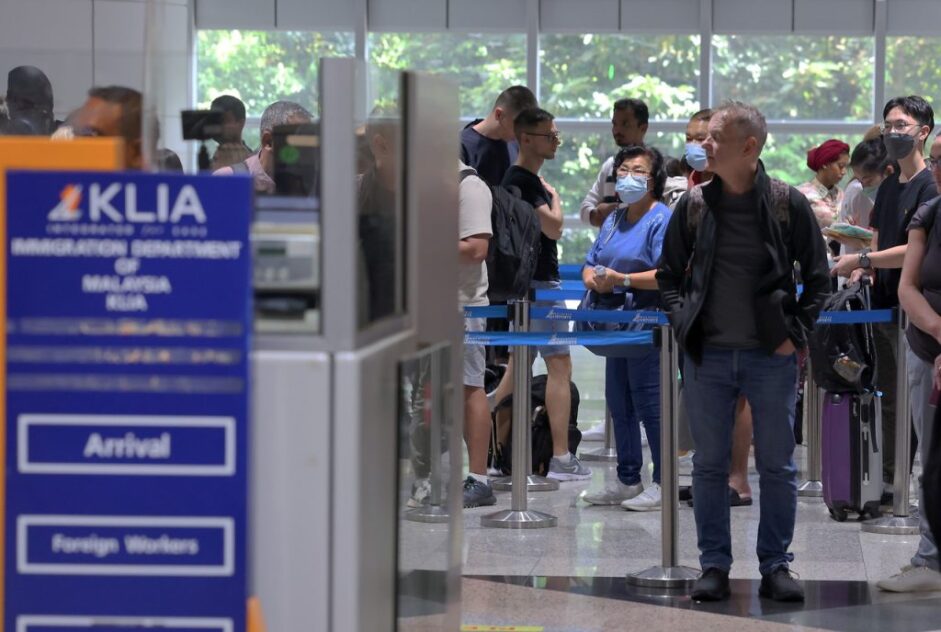THE recent plunge of the Turkish lira is expected to have minimal impact on Malaysian public listed companies (PLCs) with operations in the country.
This follows an assessment by CGS-CIMB Research on three large cap companies which are also FBM KLCI component stocks with exposure to Turkey assets.
They are Malaysia Airports Holdings Bhd (MAHB) (via wholly-owned Istanbul Sabiha Gokcen [ISG]), IHH Healthcare Bhd (via 90%-owned Acibadem) and Tenaga Nasional Bhd (via 30%-owned GAMA Enerji).
“Of the three, IHH’s earnings appear the most vulnerable to the weaker lira,” opined head of research Ivy Ng Lee Fang in a strategy note. “The historical correlation between the Turkish lira and FBM KLCI is low or insignificant.”
To re-cap, the lira plummeted 15% to near its all-time low after markets opened on Monday (March 22) following President Tayyip Erdogan’s shock weekend decision to oust a hawkish central bank governor Naci Agbal and install a like-minded critic of high interest rates.
Erdogan fired Agbal two days after a sharp rate hike that was meant to head off an inflation rate of nearly 16% and a dipping lira.
The appointment of Sahap Kavcioglu, a former banker and ruling party lawmaker, in the early hours on Saturday marked the third time since mid-2019 that Erdogan has abruptly fired a central bank chief.
Potential impact on IHH: CGS-CIMB Research expects Turkey’s EBITDA (earnings before interest, taxes, depreciation, and amortisation) to account for circa 26-29% of IHH’s overall EBITDA in FY2021-2022F.
For every 10% decline in lira vs. ringgit, we estimate there could be a 2.5%-3% decline in IHH’s EBITDA.
There will be some impact on IHH’s financing costs (forex translation gain/loss) as some of Turkey’s debt is still exposed to the euro. But IHH has been continuously de-leveraging its non-Turkish lira exposure via cross currency swaps and prepayment of debt since 2018 (from €583 mil as of end-2018 to €37 mil as of end-2020).
Hence, CGS-CIMB Research expects the extent of these net foreign exchange gain/losses to be lower in FY2021F. Acibadem was still loss-making in FY2020.
Potential impact on MAHB: A 10% depreciation of the lira will reduce MAHB’s lira-denominated net costs by €1.4 mil and boost ISG’s EBITDA by almost 2%.
The weaker lira could have an indirect positive impact on ISG as international tourists may find Turkey a cheaper destination to holiday in which may lead to higher international traffic inflows once COVID-19 travel restrictions are lifted.
However, with the travel restrictions still in place for most of Europe, the beneficial impact may be delayed.
Conversely, the weaker lira may make outbound Turkish travel more expensive for Turkish residents, leading to a demand contraction.
Potential impact on Tenaga Nasional: Tenaga Nasional’s 30%-owned Turkish assets under GAMA Enerji have been fully written down from its initial RM1 bil investment in 2018.
As of 2020, CGS-CIMB Research gathered that GAMA Enerji was still loss-making due to forex despite the company’s still-decent asset quality.
Its 840MW gas plant is highly ranked in terms of merit order for dispatch with an 80-85% utilisation rate.
The lira crisis is expected to have negligible impact on Tenaga Nasional’s earnings as it does not recognise any share of profit from GAMA Enerji after the write-down. – March 24, 2021










